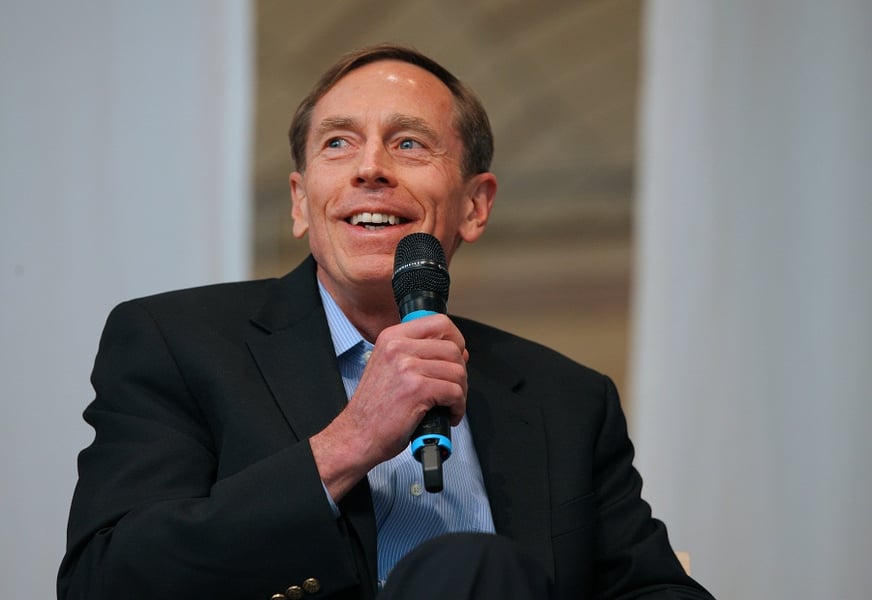It was an invitation too good to resist.
Matthew McCarthy was asked by KKR & Co. to fly to New York from Ohio, where he manages money for the founders of a consumer-products company. First, he had dinner with KKR's billionaire co-founder Henry Kravis. The next morning, he met David Petraeus, former Army four-star general and former director of the Central Intelligence Agency, who now serves as chairman of the KKR Global Institute.
“They didn't really pitch products,” said Mr. McCarthy, 43, whose firm, Rockside Capital Partners, intentionally stays under the radar. “They brought out Gen. Petraeus.”
McCarthy is the type of investor that KKR and its private-equity competitors including Blackstone Group and Carlyle Group are increasingly courting. Family offices and their advisers manage an estimated $4 trillion, including for the newly rich in Silicon Valley and China, Midwestern entrepreneurs and old money in Europe.
The money managers are responding by adding staff, holding conferences and offering sweeteners, including reduced fees on investments.
Efforts are paying off. Blackstone, which last year started reaching out directly to family offices and hosting forums for them, has $43 billion of its $310 billion under management from private wealth, more than triple the amount five years ago. Across private equity, family offices account for about 6% of capital, up from 4% in 2010, according to research firm Preqin.
Industry executives say the percentage should be higher.
“The private wealth side is such an undertapped segment, and way underinvested in alternatives,” said Brendan Boyle, Blackstone's senior managing director of private wealth management.
RECORD PROFITS
The firms are seeking new pools of wealth to lessen their reliance on state and corporate pension plans. They're also reaching out at an opportune time. Globally, private-equity firms reaped a record $428 billion by selling holdings last year, a 30 percent increase from 2013, according to Preqin.
(More: BlackRock attracts record flow in 4Q amid ETF demand, Pimco turmoil)
Cracking the network of rich families isn't easy because it requires connecting with people who don't necessarily want to be sold to, said Lawrence Calcano, a managing partner at iCapital Network, an online marketplace for private equity funds.
“They don't have to buy things, unlike pensions that may need to hit a specific return target each year to fund payouts to retirees,” Mr. Calcano said.
[More: Wealthy families are winning deals away from private equity]
VETTING DEALS
Private-equity firms want wealthy families for more than just their money.
Family offices bring expertise in buying companies, usually have fewer regulatory restrictions and can take bigger risks than pensions or endowments, said Michael Arpey, a managing director at Carlyle who oversees fundraising.
William Heitin, who works for families including the founders of fitness company Reebok International Ltd. and Stacy's Pita Chip Co., was invited by Blackstone last year to an event at the Waldorf Astoria hotel followed by time in the company's New York headquarters with senior executives.
Many of his clients are entrepreneurs who have built and sold their own businesses so they can help private-equity managers vet deals, said Mr. Heitin, whoses Waltham, Mass.-based Windrose Advisors manages more than $2 billion.
INVESTMENT OPPORTUNITY
“We have a client that started and sold a major food company,” said Mr. Heitin, Windrose's chief investment officer. “If the private-equity firm is looking at a deal with a food company, we put them in touch and then there may be a co-investment opportunity for the family.”
Private-equity firms — once they track down family offices — face intense competition to woo them from both larger and smaller rivals.
BlackRock Inc., the world's largest asset manager, has amplified efforts to serve the group by hosting summits with speakers including its chief executive officer, Larry Fink. The company has more than 20 people dedicated to working with them in the U.S. and has added staff in London, Hong Kong and Australia, said Brian Feurtado, who leads the group in the U.S.
“There's been an explosion of family offices,” Feurtado said. “It's a very, very vibrant and growing industry.”
Kayne Anderson Capital Advisors this month said it raised more than $1 billion for its latest real estate fund, with half the money from family offices and high-net-worth investors.
There are an estimated 4,000 family offices globally, according to London-based researcher Campden Wealth — with the latest addition a familiar face. Doug Ostrover, co-founder of Blackstone's GSO Capital Partners unit, announced last week he's leaving to start one of his own.
Windrose met with more than 400 investment managers last year and ultimately made just five investments, he said. Rockside passed on investing with KKR in part because the family he represents — which he declined to name — can team with other wealthy investors to buy companies themselves.
Some private equity firms are enticing family offices to invest with the promise of co-investment opportunities. That's when families invest alongside the firms rather than through a pooled vehicle, and are charged reduced or no fees. While it sounds good to investors who are more sensitive to costs, the offerings may not result in better returns, according to a 2015 study by professors Josh Lerner and Victoria Ivashina of Harvard Business School and Lily Fang of Insead.
RAMPING UP
For Jim Burns, who leads KKR's individual investor business, outreach is just ramping up. KKR hired him four years ago from Morgan Stanley's private wealth management unit to build a team focused on sales to the wealthy. Mr. Burns hired two people in the past six months to reach more family offices in Europe and Latin America, he said.
“You really have to go door to door. Most family offices don't necessarily want to be found.”







